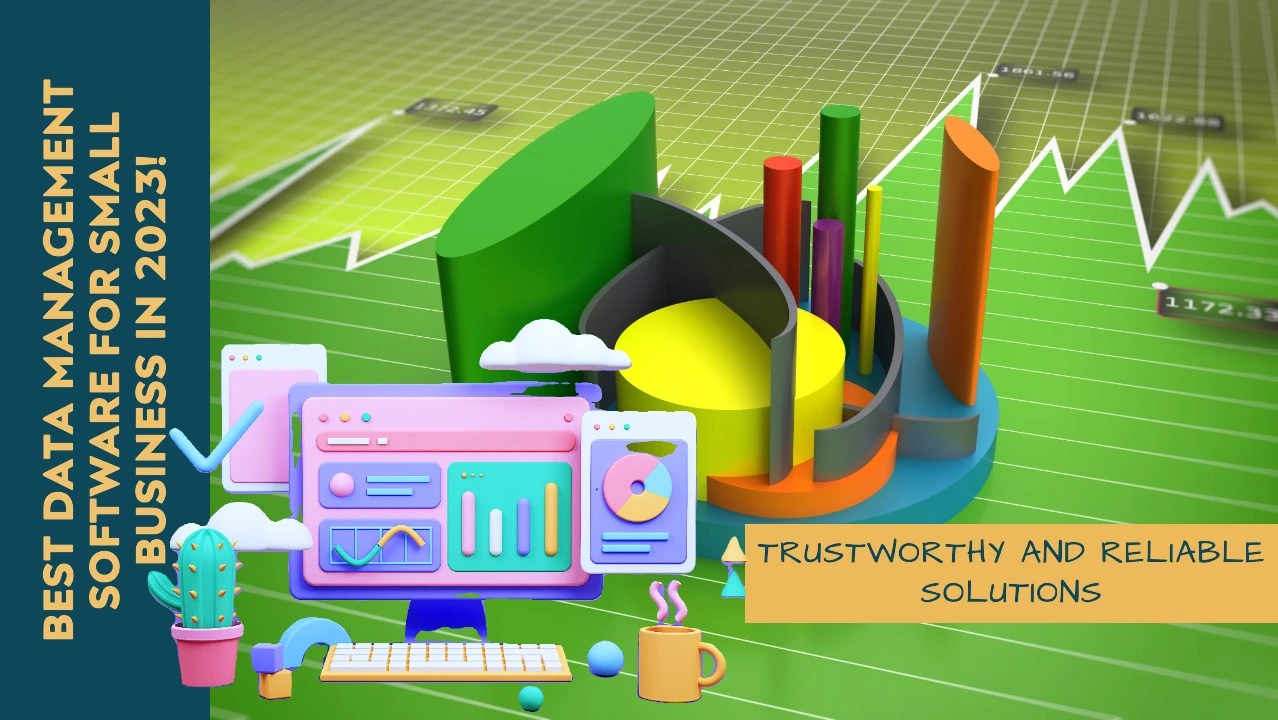In today’s data-driven world, effectively managing data is crucial for small businesses to operate efficiently and gain valuable insights. As we navigate through 2023, the 5 best data management software for small business have emerged as game-changers, empowering companies to harness their data effectively.
As teams collaborate across distributed locations and data volumes grow exponentially, implementing robust data management becomes imperative. Investing in a centralized data management platform helps consolidate disparate data sources, ensure data integrity, and enable data-informed business decisions.
This article reviews the top 5 data management platforms to help small business owners and teams seamlessly manage data and unlock impactful business insights. Explore how advanced data management software can empower your small business to unlock the full potential of data.
Understanding Data Management Software
In the bustling world of small businesses, data management software is like the unsung hero working behind the scenes. It’s the backbone that keeps everything from customer details to sales figures in check.
At its core, data management software acts like a command center for a business’ data. It takes all the disjointed, scattered pieces of data across different departments and systems and brings them together into one unified platform.
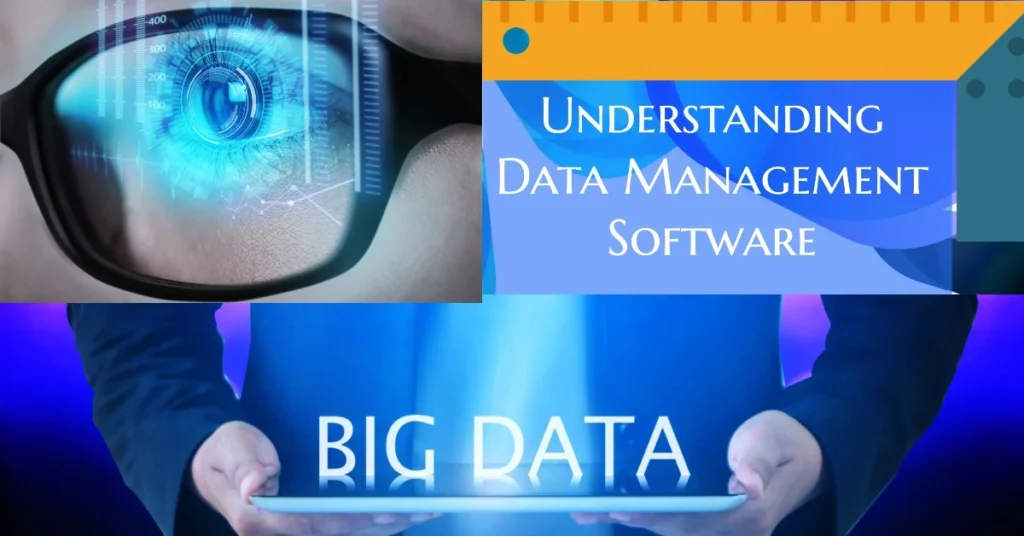
Instead of fragmented data scattered across Excel sheets, databases, and software, businesses can achieve a unified 360-degree data view through effective management software.
These solutions provide tools to efficiently collect, organize, store, govern, and analyze data. For small businesses without extensive IT resources, this eliminates the headaches of wrangling all the data manually.
Data management platforms empower teams to find insights, automate tasks, and optimize operations using the data they already have access to but may not be utilized effectively. When all employees can be data-informed decision-makers, it brings an organization to the next level.
The Role of Data Management in Small Business Success
The strategic implementation of a data management system can significantly elevate a small business’s operational success. Here’s how:
- Data management solution underpins efficient operations, enabling data-driven decisions that sharpen competitive edge.
- It ensures data quality and data security, which are paramount in building customer trust.
- By facilitating data integration, it provides a holistic view of the business, enhancing strategic planning.
- Data analytics derived from these systems aid in identifying market trends and customer preferences.
- It supports data governance, ensuring compliance with ever-evolving industry regulations.
- Real-time data access allows businesses to respond swiftly to market demands.
- Streamlined data project management through automation increases operational efficiency and reduces overhead.
Evaluating Data Management Software
Choosing the right data management tools is critical. Essential features to consider include:
- Scalability to accommodate growing data sets and business expansion.
- Advanced data security features to safeguard sensitive business and customer data.
- User-friendly interfaces that simplify master data management tasks for your team.
- Reliable customer support for troubleshooting and assistance.
- Integration capabilities that allow for seamless data exchange across various platforms.
- Analytical tools that enable businesses to harness data analytics for insight generation.
- Flexible scalability to grow with your evolving data needs and team size without heavy lifting. Cloud-based platforms make scaling smooth.
The 5 Best Data Management Software Solutions
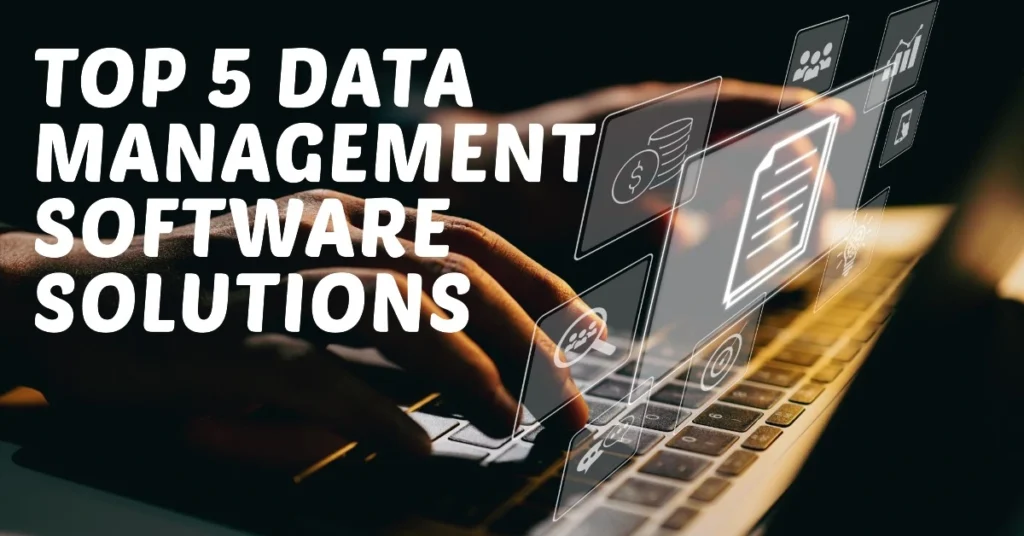
With the best business management software, small businesses can unlock impactful insights, boost efficiency, and set their strategy up for success. After extensive research, here are 5 top-rated solutions to consider in 2023:
Scoro
Scoro is an award-winning business management software covering projects, billing, reporting, and more in one flexible platform. Founded in 2007 and headquartered in Estonia, Scoro is a business trusted by over 17,000 clients worldwide.

Key Features and Benefits:
- Real-time centralized data across all business functions
- Customizable dashboard for data visualization
- Intelligent reporting and insights
- Project management with custom workflows
- Billing and invoicing
Benefits: Eliminates data silos, provides comprehensive analytics for data-driven decisions, and integrates with 500+ software tools.
Pricing:$26 – $165 per month per user. Free 14-day trial.
Reviews: 4.7/5 on Capterra based on real user ratings.
Zoho Analytics
Zoho Analytics is a powerful self-service BI and analytics solution from the Zoho product ecosystem. It was introduced in 2018 and makes data preparation, analysis, and sharing easy for everyone.
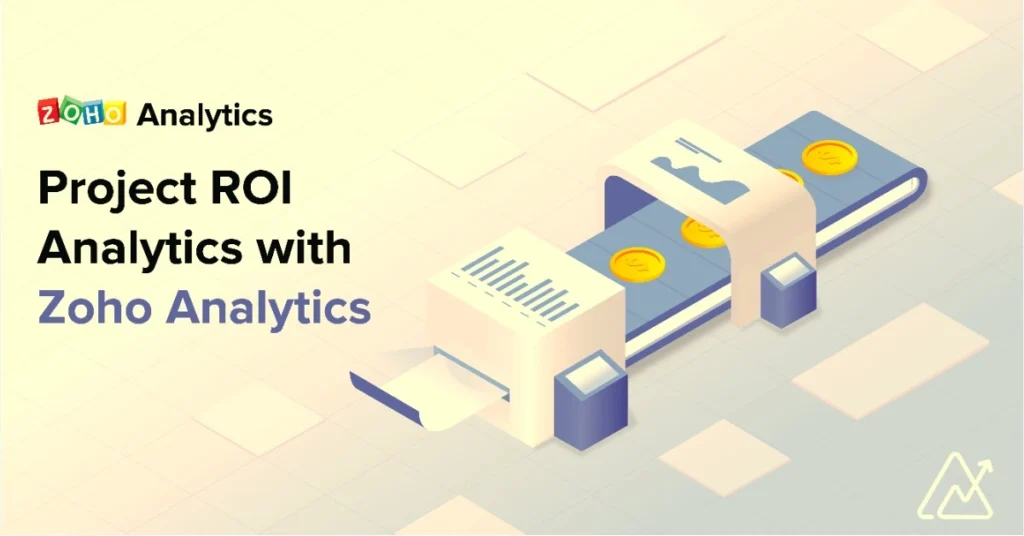
Key Features and Benefits:
- Intuitive self-service data preparation
- Interactive dashboards and reports
- Conversational native language queries
- Collaborative analytics and data storytelling
Benefits: Democratizes data access across teams. Fully integrated with Zoho CRM and other apps.
Pricing: Plans start at $15 per user monthly for the Professional edition.
Reviews:4.3/5 on Capterra from 30+ reviews.
Bitrix24
With robust capabilities spanning CRM, project management, collaboration, and more, Bitrix24 delivers an all-in-one work management platform for centralized data and streamlined operations.
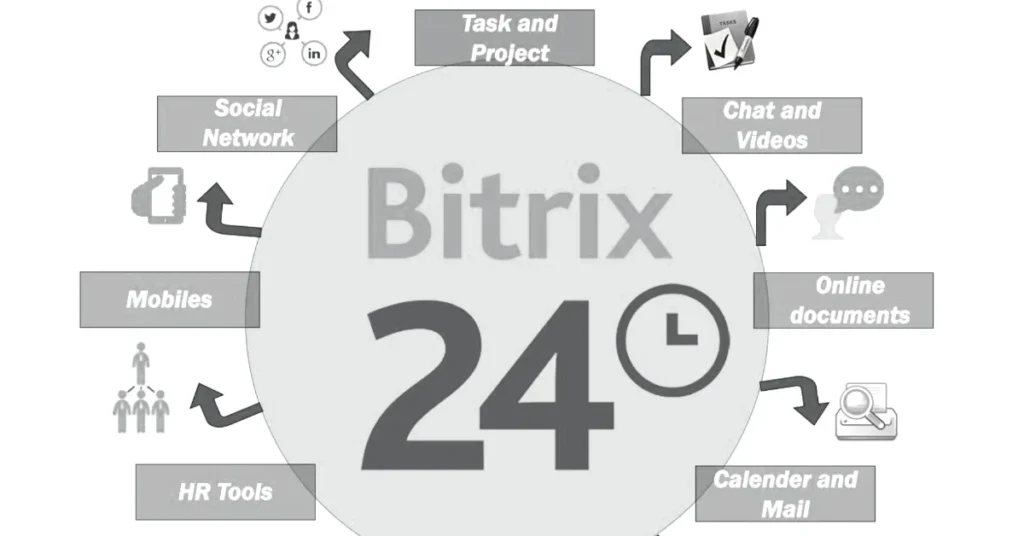
Founded in 2012, Bitrix24 offers free and paid plans to over 15 million businesses worldwide. Their solutions are designed to break down data silos and help teams access insights.
Key Features and Benefits:
- Unified customer data from interactions across departments
- Customizable workflows with automation
- Team messaging and video conferencing
- Granular access permissions and encryption
Benefits: Breaks down data silos, enhances internal collaboration, and drives productivity. Integrates with killer apps like Slack.
Pricing: Free version for up to 12 users. Paid plans are $99 – $199 per month.
Reviews: 4.6/5 on G2 based on over 3,500 reviews.
Metabase
Metabase, launched in 2015, is a leading free, open-source business intelligence platform designed for easy-to-use data access and exploration.
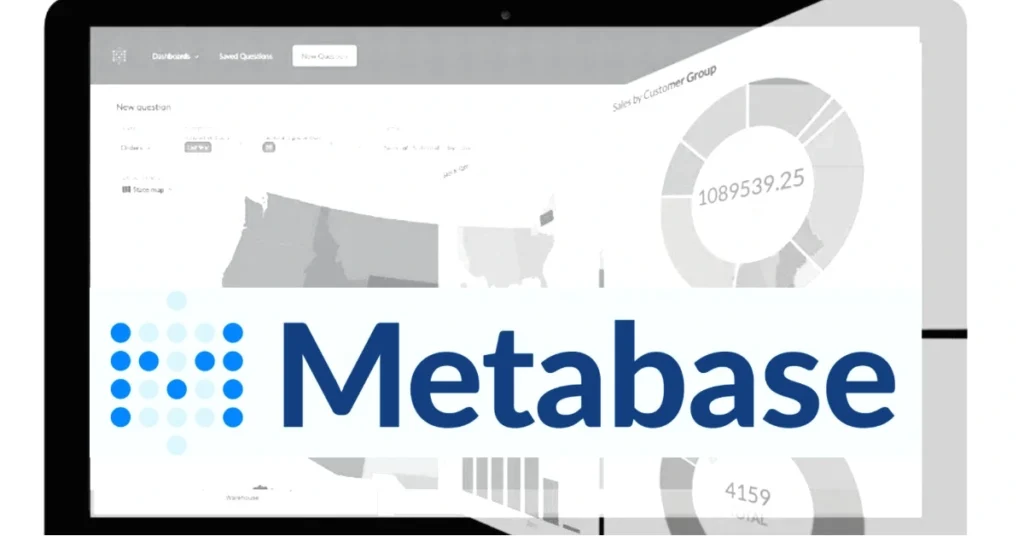
The intuitive drag-and-drop interface empowers non-technical users to analyze data and create visualizations. Metabase can be connected to databases, apps, and other sources.
Key Features and Benefits:
- Simple drag-and-drop interface
- Connects with data sources like SQL, MongoDB, and SaaS apps
- Custom metrics, segments, and question dashboards
- Embed charts and dashboards into other apps
Benefits: Enables users across teams to self-serve analytics. Great free open-source option.
Pricing: Free open-source download. Paid cloud plans start at $29 per user monthly.
Reviews:4.8/5 on Capterra based on 600+ reviews.
Oracle
Oracle offers robust relational database management systems and enterprise data management tools trusted by Fortune 500 companies worldwide.
Founded in 1977, Oracle powers data-driven transformations for organizations of all sizes. Their solutions consolidate data from across enterprises into actionable insights.
Key Features and Benefits:
- Scalable cloud and on-prem database options
- Real-time data integration and analytics
- Security, availability, and compliance capabilities
- Machine learning-driven automation features
Pricing: Custom quoted based on modules and deployment.
Reviews: 4.4/5 on Gartner Peer Insights based on 3,300+ reviews.
Pros: Powerful capabilities, global reach, strong brand recognition.
Cons: Steep learning curve, high cost, heavy resource requirements.
SAP
SAP is a market leader in end-to-end enterprise application software including solutions for ERP, data management, and business intelligence to enhance data.
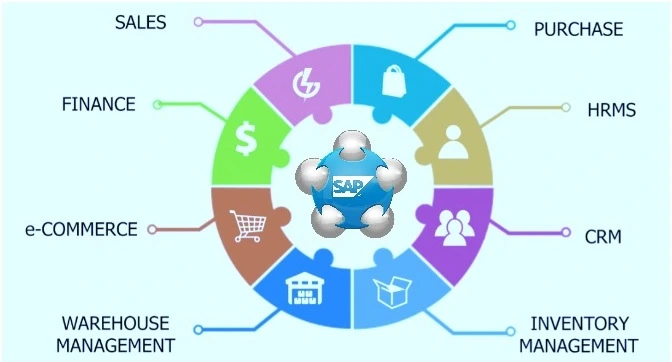
Launched in 1972, SAP now serves over 400,000 customers worldwide. Their data platforms synthesize enterprise-wide data.
Key Features and Benefits:
- Unifies data from CRM, ERP, supply chain, and other SAP apps
- Advanced data analysis, predictive modeling, planning
- Industry-specific data models and content
- Connectivity to Hadoop, cloud data sources
Pricing: Contact for a quote.
Reviews: 4.1/5 on Gartner Peer Insights from 2,900+ ratings.
Pros: Wealth of capabilities, global support, integrates SAP ecosystem.
Cons: Complex and expensive, significant internal expertise needed.
Chartio
Chartio, founded in 2010, is an intuitive data viz and analytics platform that transforms data into charts and dashboards for insight.
Key Features and Benefits:
- Intuitive drag-and-drop visual data explorer
- Broad data connectivity to cloud apps, SQL, CSV, Excel
- Automated data blending from multiple sources
- Custom report templates and color palettes
Benefits: Makes it fast and easy to visualize data from across systems. Fantastic support team.
Pricing: $ 9 – $15 per user monthly for SMB plans. Free trial.
Reviews: 4.4/5 on G2 based on 300+ Reviews.
How to Choose the Right Data Management Software
With an array of solutions available, focus on your key business needs and data scenario to choose the right fit:
- Consider your industry, size, budget, and use cases. Architect your data stack accordingly.
- Audit existing infrastructure and teams to identify gaps, pain points, and requirements.
- Shortlist options that align with your current tech stack and can scale as needed.
- Dive into free trials to experience the platform’s capabilities and interface first-hand.
Implementing Data Management Software in Your Business Operations
Follow these best practices for seamless integration of new data software:
- Gradually migrate existing databases and spreadsheets into the new system.
- Set up users, access controls, and permissions. Provide self-serve training resources.
- Build custom fields, taxonomies, and templates tailored to your workflows.
- Import historical data to enable trend analysis and benchmarking.
- Monitor adoption metrics. Fine-tune configurations and training as needed.
Future Trends in Data Management for Small Business
Exciting data management innovations on the horizon for small businesses include:
- AI-powered tools like machine learning pipelines, predictive analytics, and natural language querying.
- Real-time data analytics with instant alerts, reminders, and recommendations.
- Increased SaaS app integration for holistic data consolidation.
- More automation and self-service abilities to democratize data access.
- Enhanced cybersecurity features such as blockchain-based encryption.
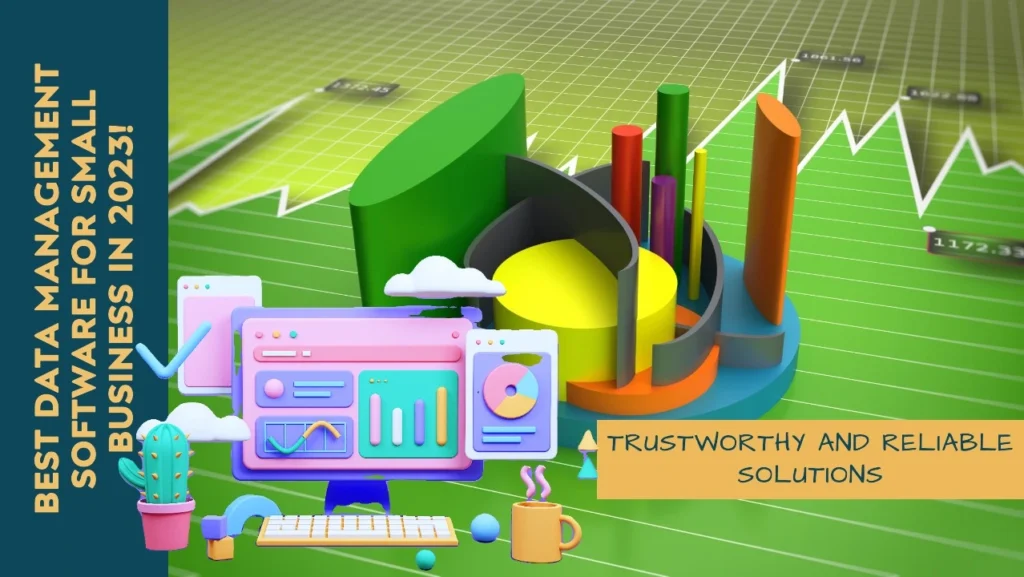
Wrapping Up
Robust data management creates a foundation for small business success in today’s competitive landscape. Investing in cloud-based business management software is crucial for small businesses aiming to thrive in today’s market. Such platforms offer database management solutions that are key to unlocking insights and streamlining operations.
Among the top picks, Firmex Virtual Data Room emerges as a standout for secure data handling, making it a leading choice for software of 2023. Businesses need to choose management software that integrates task management and customer relationship management, ensuring efficient inventory management and robust data processing capabilities.
Selecting the right software facilitates complex data management, empowering small businesses with tools to manage large data volumes effectively.

